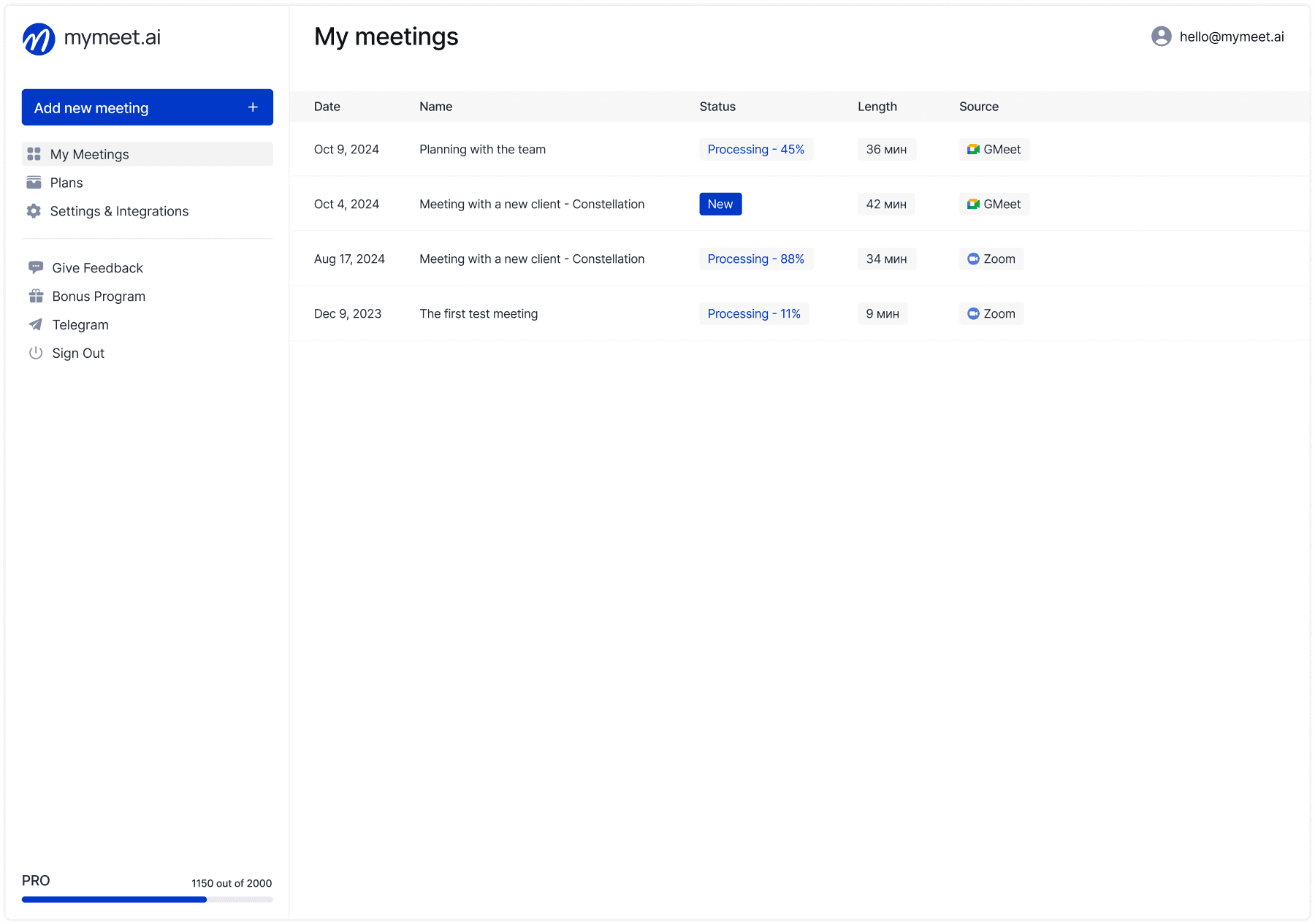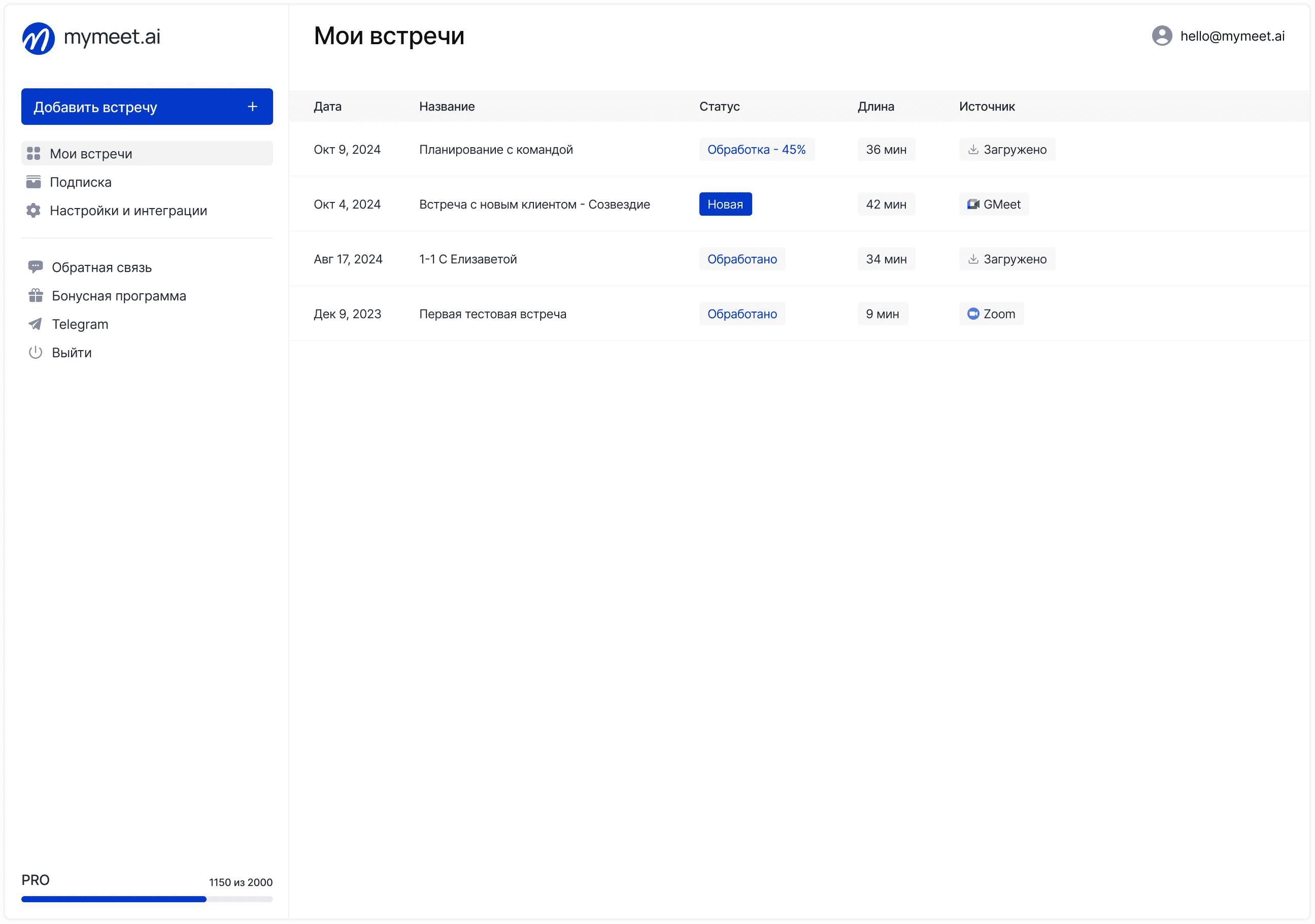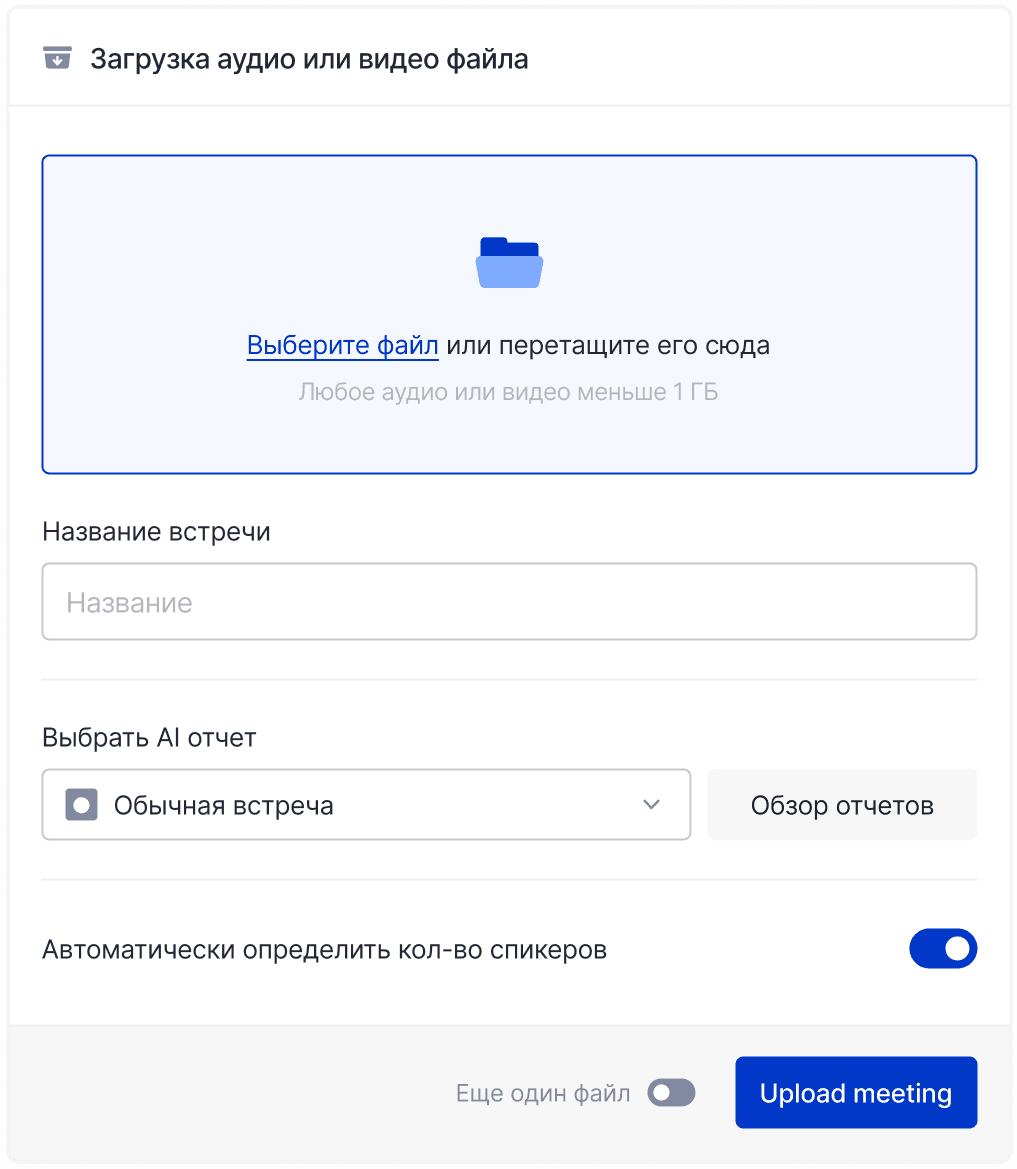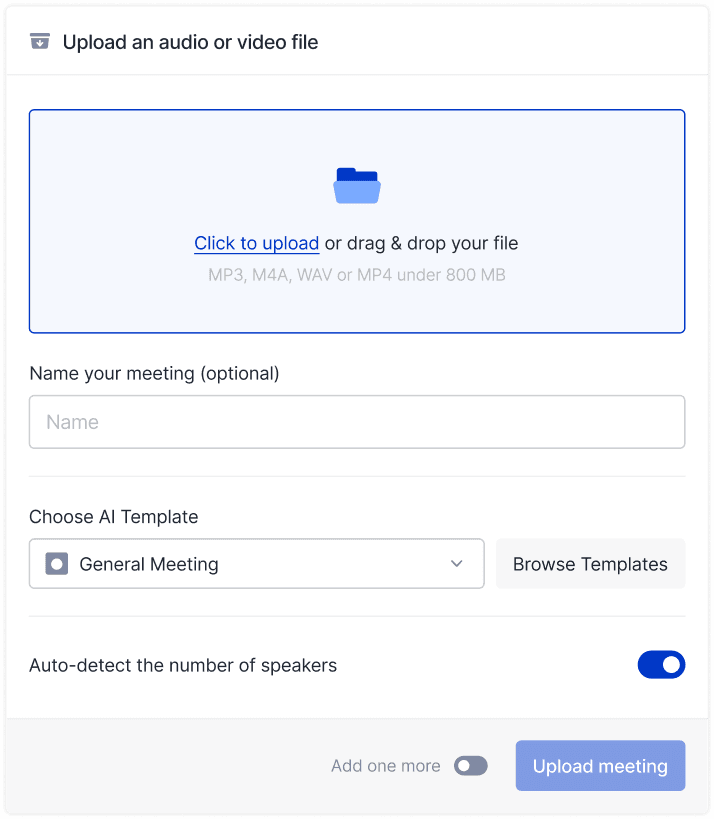Meeting Tips

Andrey Shcherbina
Nov 13, 2025

A development team conducts daily 15-minute stand-ups, but after a month, half the participants turn off cameras and do their own thing. Sprint retrospectives turn into formalities without real improvements. Planning takes three hours instead of two and ends without clear tasks. Scrum meetings only work when the team understands their purpose and properly conducts each type.
Hi there! The mymeet.ai team helps agile teams document scrum meetings and extract maximum benefit from each ceremony. We'll cover all types of scrum meetings, show how to conduct them effectively, and discuss automation of routine processes.
What Are Scrum Meetings and Why Are They Needed
Scrum meetings (or scrum ceremonies) are structured development team gatherings with clear goals, regulations, and results. These aren't regular planning sessions to "discuss current affairs," but synchronization tools within the Scrum methodology.
Each meeting solves a specific sprint task. Planning determines what to do in the next two weeks. Daily stand-up identifies blockers and synchronizes the team. Sprint review shows results to the customer. Retrospective improves work processes. All meetings are interconnected and create a continuous development cycle.
How Scrum Meetings Work in Agile
Agile methodology is built on iterative development and quick adaptation to changes. Scrum meetings provide this flexibility through regular synchronization and feedback.
Instead of one big meeting once a month, the team conducts short regular ceremonies. This allows quick reaction to problems, plan adaptation, customer feedback every two weeks. The team doesn't spend months developing a feature that later turns out to be unnecessary.
Principles of Effective Scrum Meetings
All scrum meetings follow common principles that make them useful.
Strict time regulation. Each meeting has fixed duration—15 minutes for stand-up, two hours for planning. This forces focus on the main points.
Clear goal. Participants know why they gathered and what result should be after the meeting. No vague goals like "discuss the project."
Transparency for all. Every team member sees the full picture—what colleagues are doing, what problems exist, what progress is made. No hidden information.
Regularity. Meetings are held at the same time on schedule. The team gets into rhythm and doesn't waste time on coordination.
Types of Scrum Meetings and Their Goals
Scrum methodology defines five types of mandatory meetings. Each has its role in the development cycle.
Sprint Planning
Sprint Planning is a meeting at sprint start where the team decides what to do for the next two weeks. This is the longest scrum meeting, taking up to four hours for a month-long sprint or two hours for a two-week sprint.
Participants: entire scrum team—developers, scrum master, product owner.
Goal: select tasks from product backlog and form sprint backlog—work list for the sprint.
Planning structure:
The first part of the meeting is dedicated to task selection. Product owner presents priority tasks from backlog and explains business value of each. Team asks clarifying questions to understand exactly what needs to be done. They discuss how many tasks can realistically be completed in the sprint based on team velocity—average work completion speed.
Second part—task decomposition. Team breaks selected tasks into technical subtasks, estimates complexity, discusses implementation approach. Result—detailed work plan for sprint with specific tasks and estimates.
Critical planning mistakes:
Team takes too many tasks out of optimism. A week later they realize they won't make it, start cutting functionality or moving tasks. This demotivates the team and undermines customer trust.
Product owner doesn't prepare tasks in advance. Half of planning goes to figuring out what needs to be done instead of discussing how to do it.
Tasks aren't sufficiently detailed. Developers start work and discover unconsidered complexities, estimates shift, sprint fails.
Daily Standup
Daily Standup or daily scrum—short 15-minute meeting every workday at the same time. The most frequent scrum meeting and often the most incorrectly conducted.
Participants: development team, scrum master may be present. Product owner optional.
Goal: synchronize team work, identify blockers, adjust daily plans.
Stand-up format:
Classic format—each participant in turn answers three questions:
What I did yesterday to achieve sprint goal
What I will do today to achieve sprint goal
What blockers I have that hinder work
Meeting is conducted standing (hence the name standup) so it doesn't drag on. 15 minutes for a team of 8 people—maximum two minutes per person.
Modern approach to stand-ups:
Many teams move away from "three questions in turn" format to task-based board discussion. They go through kanban board columns right to left—what's close to completion, what's in progress, what's blocked. Focus on tasks, not people.
This is more effective for large teams and projects with task dependencies. Team sees overall sprint picture, not just listening to colleagues' reports.
Common stand-up problems:
Turning into management report. Participants tell scrum master or team lead, not the team. The synchronization purpose is lost.
Discussing technical details. Two developers start solving a problem right at stand-up, others wait. Detailed discussions should go after stand-up with needed people.
Stand-up lasts 30-40 minutes. This means format is broken—either team is too large or discussing unnecessary things.
Sprint Review
Sprint Review—demonstration of sprint results to stakeholders. Conducted on sprint's last day and lasts up to two hours for a two-week sprint.
Participants: entire scrum team, product owner, stakeholders (customers, users, management).
Goal: show what was done in sprint, get feedback, adjust product backlog.
Sprint review structure:
Product owner reminds sprint goal and planned tasks. Development team demonstrates actually working functionality—product increment. Not presentations and not plans, but working code that can be tested.
Stakeholders ask questions, test features, give feedback. What they like, what needs refinement, what new ideas appeared after viewing. Product owner captures feedback and adjusts backlog priorities.
Important review points:
Show only Done tasks—fully completed, tested, ready for release. Don't show half-finished functionality "we'll finish this here."
Review is not formality for show. It's a working meeting where decisions about further development are made based on what was seen.
Focus on business value, not technical implementation details. Customer cares that feature solves their problem, not what framework it's written on.
Sprint Retrospective
Sprint Retrospective—team meeting after sprint review to analyze work processes. Lasts up to one and a half hours for a two-week sprint.
Participants: only scrum team—developers and scrum master. Product owner optional. No external observers.
Goal: find what can be improved in processes and agree on specific changes for next sprint.
Retrospective format:
Team discusses past sprint in three directions:
What was good—which practices worked, what's worth repeating
What was bad—which problems hindered work, what was annoying
What to improve—specific actions for next sprint
Important to create safe atmosphere. Participants should honestly speak about problems without fear of accusations. Retrospective is not for finding culprits but for improving processes.
Retrospective techniques:
Start Stop Continue—what to start doing, what to stop, what to continue
4L—what they liked (Liked), what they learned (Learned), what was lacking (Lacked), what they wanted (Longed for)
Mad Sad Glad—what angers, what saddens, what brings joy in work
Sailboat—ship metaphor: what helps sail (wind in sails), what slows down (anchor), what risks ahead (reefs)
Critical retrospective rule:
Each retrospective must end with specific actions for next sprint. Not general words "improve communication," but specific tasks "implement code review for all pull requests" with responsible person.
Without actions, retrospective turns into complaints and brings no changes. Team gets demotivated—why discuss problems if nothing changes.
Backlog Refinement (Grooming)
Backlog Refinement or grooming—regular meeting to prepare tasks in product backlog. Not a mandatory scrum ceremony, but practiced by most teams.
Participants: development team, product owner, sometimes analysts or designers.
Goal: detail tasks that will go into next sprints, estimate complexity, remove irrelevant items.
Regularity: usually once a week for 1-2 hours or several short 30-minute sessions.
What happens at grooming:
Product owner presents new tasks from top of backlog. Team asks clarifying questions to understand requirements, technical details, completion criteria. Discuss implementation options, what risks exist.
Team estimates task complexity in story points or other units. This helps at planning to quickly understand how much work to take.
Delete or archive tasks that lost relevance. Backlog should contain only relevant tasks.
Why grooming is needed:
Without grooming, sprint planning turns into four-hour marathon. Half the time goes to figuring out what needs to be done instead of planning how to do it.
Grooming distributes task preparation across entire sprint. By planning, team approaches with understanding of top backlog tasks and can quickly select work.
Participant Roles at Scrum Meetings
Scrum meeting effectiveness depends on understanding roles. Each participant has their area of responsibility.
Scrum Master at Scrum Meetings
Scrum master—not team leader, but process facilitator. Their task is ensuring the team follows scrum practices and gets maximum from meetings.
Role at planning: monitors time regulation, helps product owner properly present tasks, ensures team understands sprint goal.
Role at stand-up: moderates meeting so it doesn't drag on, captures blockers and helps eliminate them after meeting.
Role at review: organizes meeting logistics, invites stakeholders, helps team effectively demonstrate results.
Role at retrospective: creates safe atmosphere for honest discussion, moderates discussion, captures action items for next sprint.
Scrum master doesn't make decisions for the team. They help team self-organize and find solutions independently.
Product Owner and Product Backlog
Product owner is responsible for product business value and work prioritization. They're the only one who manages product backlog.
Role at planning: presents priority tasks from backlog, explains business value, answers team questions about requirements.
Role at stand-up: optionally present if quick decisions needed on requirements.
Role at review: demonstrates increment to stakeholders, collects feedback, decides to accept or reject completed work.
Role at retrospective: optionally present if team wants to discuss interaction with product owner.
Role at grooming: details task requirements, answers team questions, adjusts priorities.
Product owner doesn't dictate how team should implement tasks. They say what's needed and why, team decides how.
Development Team and Self-Organization
Development team performs sprint work and independently organizes its activities. Team includes everyone who creates increment—developers, testers, designers.
Role at planning: selects tasks from backlog that can be completed in sprint, details them, creates sprint plan.
Role at stand-up: synchronizes with colleagues, informs about progress and blockers, adjusts own plans.
Role at review: demonstrates implemented functionality to stakeholders, answers technical questions.
Role at retrospective: discusses process problems, proposes improvements, takes responsibility for action items.
Team is self-organizing—decides itself who takes which tasks, how to distribute work, which technologies to use. No external manager distributing tasks.
How to Effectively Conduct Scrum Meetings
Formal following of ceremonies doesn't guarantee results. Important to understand how to make each meeting truly useful.
Observing Time-Boxes
Time-box—hard time limit on meeting. This is key scrum meeting principle that forces team to focus.
Scrum meeting durations for two-week sprint:
Sprint Planning—4 hours maximum
Daily Standup—15 minutes strictly
Sprint Review—2 hours maximum
Sprint Retrospective—1.5 hours maximum
Backlog Refinement—2 hours weekly total
Exceeding time-boxes is sign of problems. Either meeting conducted incorrectly, or team too large, or tasks insufficiently prepared.
Time observance techniques:
Use visible timer on screen. Everyone sees how much time remains and understands need to speed up.
Assign timekeeper—person who monitors time and reminds when time to move to next topic.
Postpone detailed discussions. If question requires long breakdown—capture it and discuss after with needed people.
Preparation for Scrum Meetings
Meeting productivity is 80% determined by participant preparation.
Before sprint planning:
Product owner prepares top of backlog—tasks detailed, prioritized, with clear completion criteria. Team familiarized with tasks in advance through grooming.
Before stand-up:
Each participant knows what to say—reviewed their tasks, understands progress, ready to voice blockers.
Before sprint review:
Team prepared demo environment, verified everything works, ready to show functionality without technical problems.
Before retrospective:
Scrum master chose technique, prepared materials (boards, stickers or digital tools). Participants thought about sprint in advance.
Unprepared participants turn meeting into waste of time.
Focus on Meeting Goals
Each scrum meeting has clear goal. Deviation from goal is main reason for ineffectiveness.
At planning goal is create sprint backlog. Not discuss how to implement each task in detail (that will be during sprint), but understand what to take and roughly estimate.
At stand-up goal is synchronize team. Not report to manager, not solve technical problems, but understand overall picture and blockers.
At review goal is get feedback on increment. Not boast how much work done, but show business value and collect opinion.
At retrospective goal is agree on improvements. Not complain about problems, but find specific actions that will change situation.
Moderator should return discussion to goal when team goes off track.
Automating Scrum Meetings with AI
Scrum teams spend significant time documenting meetings—planning minutes, stand-up notes, capturing action items from retrospectives. Automation through AI tools frees this time for real work.
Mymeet.ai automatically records scrum meetings, creates Russian transcription, and generates structured reports with tasks and decisions.
✅ Automatic recording of all scrum ceremonies—bot connects to Zoom, Google Meet, Teams on schedule
✅ Russian transcription—accurate recognition of development technical vocabulary with speaker separation
✅ Action item extraction—AI finds all agreements and tasks from discussions
✅ Specialized reports—templates for planning, stand-ups, retrospectives
✅ Knowledge base from meetings—search through all past discussions via AI chat
Automating Daily Stand-ups
Daily stand-ups accumulate large volume of information per sprint. Without capture, details are lost—who said what a week ago, what blockers were discussed.
Mymeet.ai records each stand-up and creates brief summary:
Who worked on what
Which tasks completed
Which blockers voiced
Who promised to help whom
Team gets history of all sprint stand-ups. Can quickly recall what was discussed five days ago, find when problem was first mentioned, track task progress.
For distributed teams in different time zones, stand-up recording replaces need for everyone to be present simultaneously. Colleague from another city reviews recording when convenient.
Documenting Sprint Retrospectives
Retrospectives create action items for next sprint, but half are forgotten in a week. Team discusses same problems again and again.
Mymeet.ai captures all retrospective action items with responsible parties and discussion context. Scrum master gets clear list of what needs implementing, can track execution and remind team.
Analysis of retrospective series shows patterns. Which problems repeat sprint to sprint. Which improvements work, which don't. Team sees dynamics of process changes.
Sprint Planning Minutes
Sprint Planning creates sprint backlog, but discussion details often lost. A week later, developer doesn't remember why task was estimated at 8 story points, what risks were discussed, what assumptions made.
Mymeet.ai saves complete planning discussion. Can return to any task and restore context—what product owner said about requirements, what questions team asked, what implementation options were considered.
This is critical when task turns out more complex than thought. Can verify exactly what was discussed at planning and whether there was requirements misunderstanding.
Case Study: How a Team of 12 Developers Saves 10 Hours on Sprint Documentation
Agile team of 12 developers worked in two-week sprints. Conducted all scrum ceremonies by the book, but scrum master spent 2-3 hours weekly on meeting minutes formatting, action item capture, summary distribution to team.
Problem: Scrum master simultaneously moderated meetings and tried to write down key points. Result was either moderation suffered (distracted by notes) or discussion details were lost (didn't manage to write down). Daily stand-ups weren't captured at all—too short to spend time on minutes.
Solution: Implemented mymeet.ai with automatic connection through Google Calendar. Bot recorded all scrum ceremonies—planning, stand-ups, reviews, retrospectives. Created transcription and structured reports with tasks.
Results: Saving 10 hours per sprint on meeting documentation. Scrum master focuses on moderation without distraction to notes. Team receives detailed minutes of all meetings including stand-ups. Knowledge base from past sprints helps new team members quickly get into context.
Common Mistakes in Conducting Scrum Meetings
Even experienced agile teams make mistakes that reduce scrum ceremony effectiveness.
Turning Stand-up into Management Report
Mistake: Participants tell about their work to scrum master or team lead, not to team. Look at manager, report progress, await approval.
Why happens: Misunderstanding of stand-up purpose. Seems like work control, not team synchronization.
How to avoid: Scrum master reminds that stand-up is for team, not for them. Participants address each other, not moderator. Discuss how to help colleagues, not report what was done.
Dragging Out Scrum Meetings
Mistake: Planning lasts five hours instead of four. Stand-up stretches to 30 minutes. Retrospective takes all day.
Why happens: No clear moderator monitoring time. Team goes into technical details. Discuss questions concerning only part of participants.
How to avoid: Strictly observe time-boxes. Use timer on screen. Postpone detailed discussions to after-meeting with needed people. Moderator interrupts prolonged discussions and returns to agenda.
Formal Retrospective Conduct
Mistake: Retrospective turns into formality. Participants voice stock phrases "everything was good," "need to improve communication." Don't produce specific action items. Nothing changes next sprint.
Why happens: No safe atmosphere for honest problem discussion. Participants fear criticism or don't believe changes possible.
How to avoid: Scrum master creates trust in team. Starts with positive to relieve tension. Asks provocative questions to get participants talking. Definitely ends retrospective with specific actions with responsible parties and deadlines.
Ignoring Team Opinion
Mistake: Product owner or scrum master make decisions unilaterally without considering team opinion. At planning dictate which tasks to take. At retrospective ignore participant suggestions.
Why happens: Misunderstanding of self-organizing team principles. Habit of command-administrative management style.
How to avoid: Product owner and scrum master are not managers in traditional sense. They help team self-organize. Decisions made collectively based on discussion. Team itself chooses which tasks to take in sprint, itself decides how to improve processes.
Optimizing Scrum Processes
Scrum meetings work effectively when team understands their purpose and regularly improves conduct processes.
Adapting to Team Specifics
Scrum is a framework, not rigid rule set. Team adapts scrum ceremonies to their specifics while preserving key principles.
Small teams (3-4 people) can shorten meeting duration. Planning in an hour instead of four, stand-up in 5 minutes.
Distributed teams in different time zones can do stand-ups asynchronously through written updates. Conduct other ceremonies synchronously at time convenient for all.
Teams with kanban approach can combine scrum meetings with kanban practices. Discuss tasks by board, focus on work flow.
Main thing is preserving meeting goals and regularity. Format can change, essence should remain.
Scrum Meeting Effectiveness Metrics
Measurement helps understand whether meetings work or changes needed.
Planning metrics:
How many tasks planned vs how many completed (commitment vs delivery)
Estimate accuracy (planned vs actual story points)
How many tasks moved to next sprint
Stand-up metrics:
Stand-up duration (should be stable ~15 minutes)
Number of blockers voiced vs resolved
Percentage of participants actively speaking
Review metrics:
Number of demonstrated tasks
Amount of stakeholder feedback
Backlog changes after review
Retrospective metrics:
Number of action items per sprint
Percentage of completed action items from past retrospectives
Repetition of same problems
Team discusses metrics at retrospectives and adjusts processes.
Tools for Scrum Teams
Effective scrum teams use tools for work organization and meeting conduct.
Jira, Azure DevOps, YouTrack—for backlog management and sprint task tracking
Miro, Mural, FigJam—virtual boards for remote planning and retrospectives
Zoom, Google Meet, Microsoft Teams—platforms for video meetings
Mymeet.ai—automatic recording and documentation of all scrum ceremonies
Confluence, Notion—team knowledge base with meeting minutes and decisions
Right tools automate routine and free time for product work.
Conclusion
Scrum meetings aren't formal ceremonies for show, but working team synchronization tools. Planning determines sprint work, stand-ups identify blockers daily, review collects customer feedback, retrospective improves processes. Each meeting has clear goal, regulation, and result.
Meeting effectiveness depends on understanding participant roles, observing time-boxes, focus on goals. Documentation automation through AI tools frees team time for real product work.
Ready to automate scrum meeting documentation? Try mymeet.ai for free—180 minutes of automatic recording and transcription of all scrum ceremonies without card attachment.
Frequently Asked Questions About Scrum Meetings
Is it mandatory to conduct all types of scrum meetings?
Yes, planning, stand-ups, review, and retrospective are mandatory scrum ceremonies. Skipping any breaks the inspect-and-adapt cycle. Backlog grooming isn't formally mandatory but practiced by most teams for effective preparation.
How many people should be in a scrum team?
Optimally 5-9 people including scrum master and product owner. Less than 5—may lack competencies. More than 9—complicates communication and coordination. For large projects, several small teams are better than one huge team.
Can you skip daily stand-ups?
No, daily standup is conducted every workday of sprint. Skips disrupt team synchronization. If someone can't attend—sends written update. For distributed teams, can do asynchronous stand-ups via chat.
What to do if stand-up lasts longer than 15 minutes?
Look for dragging cause. Perhaps team too large—divide into subteams with separate stand-ups. Or discussing details that need to be taken out after stand-up. Or no moderator monitoring time. Strict time-box is critical for stand-ups.
Who should lead scrum meetings?
Scrum master facilitates meetings but doesn't lead alone. Planning is led jointly by product owner and team. Stand-up is moderated by any participant. Review is conducted by product owner. Retrospective is facilitated by scrum master. Team is self-organizing, moderator only helps process.
Are scrum meetings needed for small teams of 2-3 people?
Yes, but can shorten duration. Planning in an hour, stand-up in 5 minutes, review in 30 minutes. Meeting essence preserved—work planning, daily synchronization, results demonstration, process analysis. Format adapts to team size.
How to conduct scrum meetings for remote teams?
Use video conferences with cameras on for engagement. Virtual boards (Miro, Mural) for collaborative work at planning and retrospectives. Automatic recording of meetings for colleagues in other time zones. Principles same, tools adapted for remote work.
What to do if people are silent at retrospective and don't suggest improvements?
Problem is lack of psychological safety. Scrum master creates trust—starts with positive, shares problems themselves, shows criticism is constructive. Use anonymous techniques (stickers, online forms). Vary retrospective formats so it's not boring.
Can you combine several scrum meetings into one?
No, each meeting has its own goal and participants. Can't do "big meeting" instead of planning, review, and retrospective. Can conduct review and retrospective on same day sequentially, but these are different meetings with different goals.
How to automate documentation of all scrum meetings?
Use mymeet.ai with calendar integration. Bot automatically connects to all scheduled scrum ceremonies, records discussions, creates Russian transcription, and generates structured reports with tasks and decisions. Team receives minutes of all meetings without manual work.
Andrey Shcherbina
Nov 13, 2025







